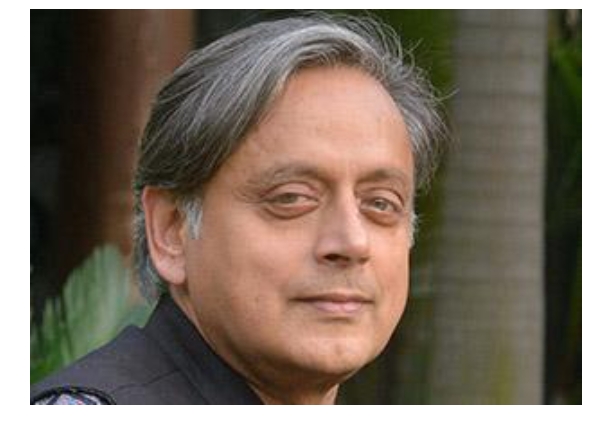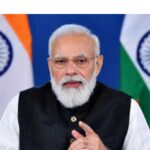UN Security Council reform
Shashi Tharoor is a third- term Member of Parliament( Congress) and former Under- Secretary General of the United Nations, former president of the External Affairs Committee of Parliament and author of 25 books including ‘ Pax Indica ’ and( with Samir Saran) ‘ The New World complaint ’
The problem of reforming the United Nations Security Council is akin to a sickness presented before croakers
— there’s agreement only on the opinion and not the tradition further than three decades after the debate first started over abecedarian reforms at the United Nations( UN), the issue appears to have resurfaced at the ongoing General Assembly session of the world body. President Recep Tayyip Erdoğan of Türkiye was blunt “ The Security Council has desisted to be the patron of world security and has come a battlefield for the political strategies of only five countries. ” Indeed the UN’s Secretary- General, António Guterres, issued a stern warning “ The world has changed. Our institutions have not.
We can not effectively address problems as they’re if institutions don’t reflect the world as it is. rather of working problems, they risk getting part of the problem. ” It couldn’t have been put more bluntly, but we’ve heard this song ahead. Politically, it’s untenable that the five endless members( China, France, Russia, the United Kingdom, and the United States) enjoy their position, and the honor of a proscription over any Council resolution or decision, simply by virtue of having won a war 76 times agone.
In the case of China, the word ‘ won ’ needs to be placed within reversed commas. I was serving at the UN when also- Secretary General Boutros Boutros- Ghali declared that Security Council reform must be fulfilled in time for the 50th anniversary of the world organisation in 1995. But indeed as the critical rhetoric continues to be spoken, the organisation has missed not only the 50th anniversary of the UN, but indeed the 60th, the 70th and now the 75th.
Left to their own bias, member- countries will be arguing the graces of the case well past the UN’s centenary. An unjust situation in terms of equity The problem of reforming the Security Council is akin to a sickness in which a number of croakers
gather around a case; they all agree on the opinion but they can not agree on the tradition. The opinion is clear the Security Council reflects the geopolitical realities of 1945 and not of moment. When the UN was innovated in 1945, the Council comported of 11 members out of a total UN class of 51 countries; in other words, some 22 of the member countries were on the Security Council.
Moment, there are 193 member- countries of the UN, and only 15 members of the Council — smaller than 8. The one change ever made to the original Duty was in 1965 when the Security Council was expanded from 11 members to 15 by adding four further taggednon-permanent members. So, numerous further countries, both in absolute figures and as a proportion of the class, don’t feel adequately represented on the body.
The composition of the Council also gives overdue weightage to the balance of power of those days. Europe, for case, which accounts for slightly 5 of the world’s population, still controls 33 of the seats in any given time( and that doesn’t count Russia, another European power). In terms of simple considerations of equity, this situation is unjust for starters, to those countries whose fiscal benefactions to the UN overweigh those of four of the five endless members — Japan and Germany have for decades been the alternate and third largest contributors to the UN budget, while still being appertained to as ‘ adversary states ’ in the United Nations Charter( since the UN was set up by the victorious Abettors of the Second World War).
And it denies openings to other countries similar as India, which by its sheer size of population, share of the world frugality, or benefactions in kind to the UN( through participation in peacekeeping operations, for illustration) have helped shape the elaboration of world affairs in the seven decades since the organisation was born. stations by countries.
So, the Security Council is easily ripe for reform to bring it into the alternate quarter of the 21st century. But for every state that feels it deserves a place on the Security Council, and especially the sprinkle of countries which believe their status in the world ought to be recognised as being in no way inferior to at least three of the being endless members, there are several who know they won’t profit from any reform. The small countries that make up more than half the UN’s class accept that reality and are happy to contend sometimes for a two- timenon-permanent seat on the Council. But the medium- sized and large countries, which are the rivals of the prospective heirs, deeply begrudge the prospect of a select many breaking free of their current alternate- rank status in the world body. numerous are openly amped by a spirit of competition, literal grievance or simple covetousness.
They’ve successfully and indefinitely baffled reform of the class of the Security Council. Part of the problem is that the bar to amending the UN Charter has been set rather high. Any correction requires a two- thirds maturity of the overall class, in other words 129 of the 193 countries in the General Assembly, and would further have to be ratified by two- thirds of the member countries. Ratification is generally a administrative procedure, so, in other words, the only ‘ tradition ’ that has any chance of end is one that will both convert two- thirds of the UN member- countries to support it and not attract the opposition of any of the being endless five — or indeed that of a importantU.S. Senator who could block ratification in Washington.
That has proved to be a altitudinous order indeed. India’s credentials may feel egregious to us, but China is none too keen on lacing its status as the only Asian endless member; Pakistan, which fancies itself as India’s strategic rival on the key, is unalterably opposed; and to some extent Indonesia seems to feel lowered by the prospect of an Indian seat. In Latin America, Brazil occupies a place similar to India’s in Asia, but Argentina and Mexico have other ideas, pointing to Portuguese- speaking Brazil’s inferior credentials in representing largely Hispanic Latin America. And while Africa, given that it accounts for 54 member- countries, insists on two endless seats, how is one to arbitrate the rival credentials of the mainland’s largest republic, Nigeria, its historically largest frugality, South Africa, and its oldest civilization, Egypt? Another offer suggests creating a alternate order of “semi-permanent members ” to accommodate similar countries for, say, 10- time electable terms.
It has set up no takers among the top applicants. Continuing deadlock So, while the debate keeps going round in circles for decades, deadlock continues in the Security Council, as utmost vividly illustrated lately over the Ukraine conflict, when a Permanent Member of the Security Council raided a autonomous UN member- state and the Council proved helpless to respond.
Russia’s adding resort to the proscription has blocked judgments on Ukraine, Mali, Syria and North Korea. analogous obstructionism by the West has affected proffers to reform the fiscal institutions established at Bretton Woods in 1944, the World Bank and the International Monetary Fund. And yet this is the only global system we’ve got that brings all countries together on a common platform. Can we go to let it fade into ineffectiveness and impertinence?
For more information visit at https://happenrecently.com/zepto/?amp=1
Source: www.indianexpress.com



